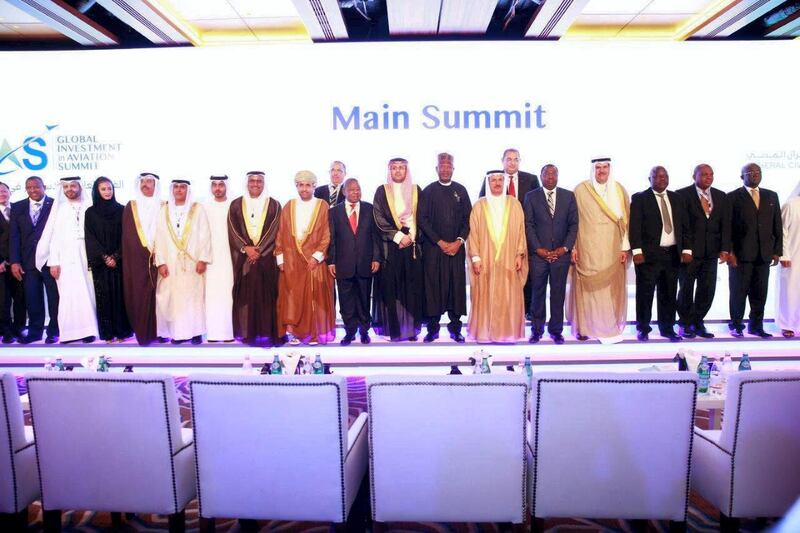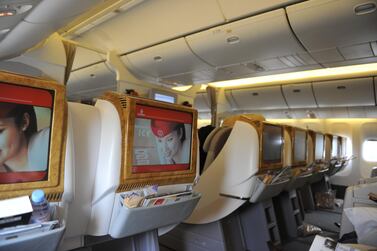The aviation industry will remain resilient despite global economic headwinds and geopolitical tensions with the sector returning to expansion in 2020, the UAE's aviation regulator said.
The aviation sector's contribution to the UAE's gross domestic product is expected to remain at 13 per cent and passenger traffic of national carriers at around four per cent in 2019 year-on-year, Saif Al Suwaidi, director-general of the General Civil Aviation Authority, said in an interview on Tuesday on the sidelines of the Global Investment Aviation Summit.
"I’m very optimistic about 2020 due to Expo and the situation of the global economy will be better," Mr Al Suwaidi said. "After 2020, aviation growth will resume and along with that, the contribution of oil will reduce as planned so aviation will boost revenues directly and indirectly through other sectors such as trade."
The UAE has set a target for aviation to contribute 20 per cent of its GDP by 2030 from 13 per cent in 2018. The country, home to the world’s busiest hub by international travel and the largest long-haul airline, is diversifying its economy from oil and focusing on aviation to boost non-oil revenues. The UAE plans to spend 85 billion dirhams by 2030 on developing its airports across the country, according to government data.
"Aviation contribution to GDP will remain the same in 2019 due to challenges that the international aviation market faces from instability in some regions," he said. "The economic situation in the world and geopolitical situation in the region is affecting our growth."
Dubai International Airport reported one per cent growth in annual passenger volumes in 2018 to 89.1 million, shy of its 90.3 million target, but retaining it's top position globally as the busiest hub for international travellers,
The UAE is submitting a bid to chair the council of the Montreal-based International Civil Aviation Organization (ICAO), with a decision expected in November after the council members are elected in October and vote for a new council chair.
Mr Al Suwaidi said he is " very optimistic" about the chances of Captain Ayesha Al Hamli, the UAE's representative on the ICAO council, for getting the position as the country has backing from Arab nations, Asia, Africa and Latin America.
"She would be the first female president of the ICAO, that will send a lot of positive messages about the role of women in aviation in general and in the Middle East," he said. "It would reflect the aviation position of the UAE."
The GCAA, which is currently reviewing the safety of Damascus airport as it evaluates the return of national carriers to the Syrian capital, expects to make a final decision within a week on whether to give operators the go-ahead.
While the regulator's role is to inspect the airport for safety and security measures, the decision to operate flights to Syria will rest with the carriers themselves depending on the airport's logistics readiness, he said.
Mr Al Suwaidi said the UAE is open to investment from the private sector in aviation-related projects including aircraft maintenance, parts manufacturing, training and logistics.
"The potential for those are very high and its still under-served in the UAE and it’s a good start for the private sector to jump in," he said.








